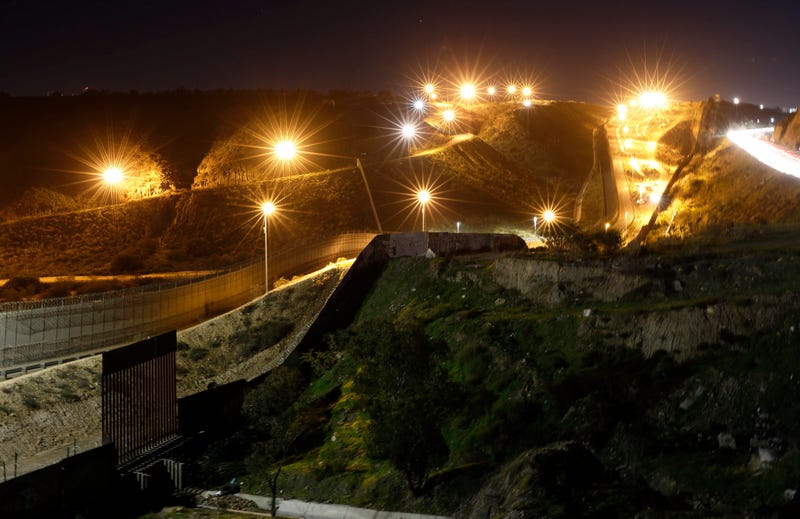
For days now, the White House has been discussing declaring a national emergency — a move that would essentially bypass Congress in order to build Trump's wall on the southern border. If such a policy decision were to be made, however, it turns out the military would likely be paying most of the price.
Section 2808 of the Title 10 U.S. Code states that if the president declares a national emergency "that requires use of the armed forces," the Defense Secretary "may undertake military construction projects, and may authorize the Secretaries of the military departments to undertake military construction projects, not otherwise authorized by law that are necessary to support such use of the armed forces."
Essentially, if the president were to declare a national emergency, he wouldn't need Congress's money — he could use the military's.
The money would need to come specifically from funds allocated for military construction. A congressional aide told the Washington Post that there's roughly $10 billion left in that budget for the current fiscal year and an additional $13 billion in rollover from previous years. But all of those funds have been appropriated to future and ongoing military construction projects — projects that would go uncompleted should the president use those funds to build the wall instead.
It's unclear whether or not Trump would use Section 2808 should he declare a national emergency. It would likely lead to legal challenges as Section 2808 can only be enacted for spending on Defense Department functions — which, it can be argued, the border wall is not. The Pentagon hasn't used Section 2808 in the United States since 2001, immediately following the attacks on Sept. 11, to restabilize certain military installations. Since then, the emergency measure has been used 17 times overseas on projects such as military barracks, power lines, and airfields in places like Afghanistan, Iraq, and Djibouti.
Defense officials have communicated that it wouldn't be the right move.
"We are not at war with Mexico, and the proposed border wall has no core (Defense Department) function. Indeed, the Pentagon's most recent National Defense Strategy doesn't mention the southern border as a national defense priority," Sen. Jack Reed, the ranking Democrat on the Senate Armed Services Committee told Military Times.
Trump has stated that, for now, he would like to continue negotiations rather than resort to declaring a national emergency — but he has also made it clear that he's willing to continue the government shutdown for months or years. Tonight, he will address the nation in his first Oval Office Speech as president, to appeal to the country that his wall is necessary to end the "crisis" on the southern border.
